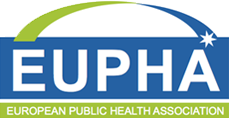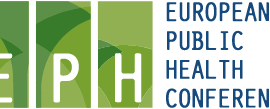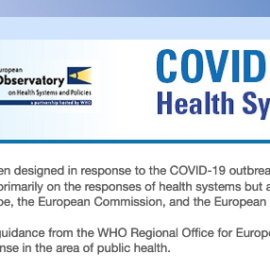
Statement by the EUPHA and EUPHA-IDC
8 October 2020
Nine months into the COVID-19 pandemic, over 26,000,000 cases and 850,000 deaths have been reported. Increases in the number of reported cases, often described as a “second wave” are currently being seen in many countries in Europe. A consensus is building that without safe and effective vaccines, the global community either will face a prolonged pandemic that will cost many more lives and strain health systems, or regular restrictive lockdowns that will heavily impact on the local and global economy, as well as indirectly affect the physical and mental health of individuals and communities.
As a result, there is a tremendous amount of attention on COVID-19 vaccines and the speed and scale of development is unprecedented. As of September 22nd, the World Health Organization (WHO) reported 191 vaccine candidates, of which 40 were in human clinical studies and 10 in advanced (phase III) trials.
While a COVID-19 vaccine is often being portrayed as a “magic bullet” that will stop the pandemic, the reality is more nuanced and there are many questions that need to be addressed in order to maximise the impact of a (or several) potential vaccine(s). Beyond the issues of developing safe and effective vaccines for all age groups, logistical, operational, policy, financial, ethical, cultural and behavioural issues arise: whereas vaccine programmes usually target specific age or risk groups, COVID-19 vaccination will require mass targeting of entire populations, possibly with different vaccines, which will likely exceed the capacity of healthcare systems to deliver vaccines in their usual settings. Questions around settings, workforce, consent, infection control, waste management, data collection and sharing arise. In addition, equity both within countries (between different groups that comprise the population of a country) and between (high- and low-income countries) require a different approach to access to vaccines and financing. Manufacturing the number of doses required to control the pandemic also require a new perspective on collaborative approaches within the industry with the support of multi-lateral organisations.
The WHO recommends that successful vaccines should show an estimated risk reduction of at least one-half, with sufficient precision to conclude that the true vaccine efficacy is greater than 30%. The WHO does not however specify what endpoints should be use to estimate efficacy. Several vaccines are currently in advanced stages of development and it is likely that several vaccines targeting different groups will be needed to control this pandemic at the global level.
The EUPHA Infectious diseases control section (EUPHA-IDC) supports the approach whereby a minimum efficacy is required, below which a vaccine could be detrimental to the control of the pandemic by creating a false sense of security that would lead to complacency with regards to other control measures, such as hand washing or social distancing. Beyond the direct safety and efficacy characteristics of the vaccine, EUPHA-IDC supports the delivery of a COVID-19 vaccine programme that is accessible, equitable and confers maximum population protection with the number of doses available. EUPHA and EUPHA-IDC stand behind a future global COVID-19 vaccine programme that:
- is equitable and enables access to vaccination according to need. Between countries, this entails unprecedented collaboration between vaccine manufacturers to boost production capacity and ensure a sufficient number of doses are available and a financing mechanism that enables availability in low income countries where needed. Prioritization should be based on public health needs rather than the ability to purchase vaccines. Within countries, this means planning for mass vaccination on an unprecedented scale, including offering vaccination in non-traditional settings, especially where this helps reach underserved populations most at risk of COVID-19.
- is adequately staffed. Workforce planning is an essential component for a vaccine programme of an unprecedented scale that will require additional staff to be recruited and work extended hours in order to cope with the volume of individuals to be vaccinated and to ensure that delivering COVID-19 vaccines does not negatively impact on the delivery of other healthcare services. It is important to ensure that staff are in sufficient numbers and adequately trained.
- is safe. Manufacturers should be able to demonstrate that an accelerated vaccine development does not imply any compromise on safety. This is important both for public safety as well as confidence in future COVID-19 vaccines. Beyond the safety of the vaccine itself, mass vaccination of this scale will create some logistical challenges with safety implications such as sharps waste management and cold chain. These issues need to be mapped and solutions found before a vaccine is available.
- targets those who need it the most while optimizing population protection and herd immunity. This entails manufacturers agreeing now to head-to-head vaccine trials to determine which products are most efficient in which groups, as well as early studies on indirect protection, which is especially important in a scenario where sufficient doses to cover the entire world’s population is unlikely. Likewise, different vaccines may be efficient in specific age groups. Vaccine manufacturers should collect this information and share it with independent researchers in a transparent manner.
- is adequately supported by effective communication aimed at the different individuals and communities eligible for the vaccine using context specific, culturally appropriate messages. This is particularly important in an age where unfounded, irrational fears about vaccines and vaccination are gaining more traction, including among some political circles.
- optimizes its performance based on data. This entails setting up data collection systems regardless of what setting the vaccine is offered in. These systems need to be inter-operable to ensure vaccine programmes can be adequately monitored, and the data generated should be shared in order to rapidly generate and disseminate evidence of best practice in this unprecedented situation.
EUPHA and EUPHA-IDC believe that vaccines will be part of the answer to ending the COVID-19 pandemic. We also believe that a safe and effective vaccine in itself will not be sufficient. The public health approach implies considering all upstream and downstream factors that are necessary for the successful delivery and monitoring of a COVID-19 vaccine programme. Decisions regarding who to target or prioritize should be based on evidence-based public health needs.
For more information, please contact Dr Michael Edelstein, President EUPHA-IDC, michael.edelstein@doctors.org.uk or Dr Dineke Zeegers Paget, EUPHA executive director, office@eupha.org.



